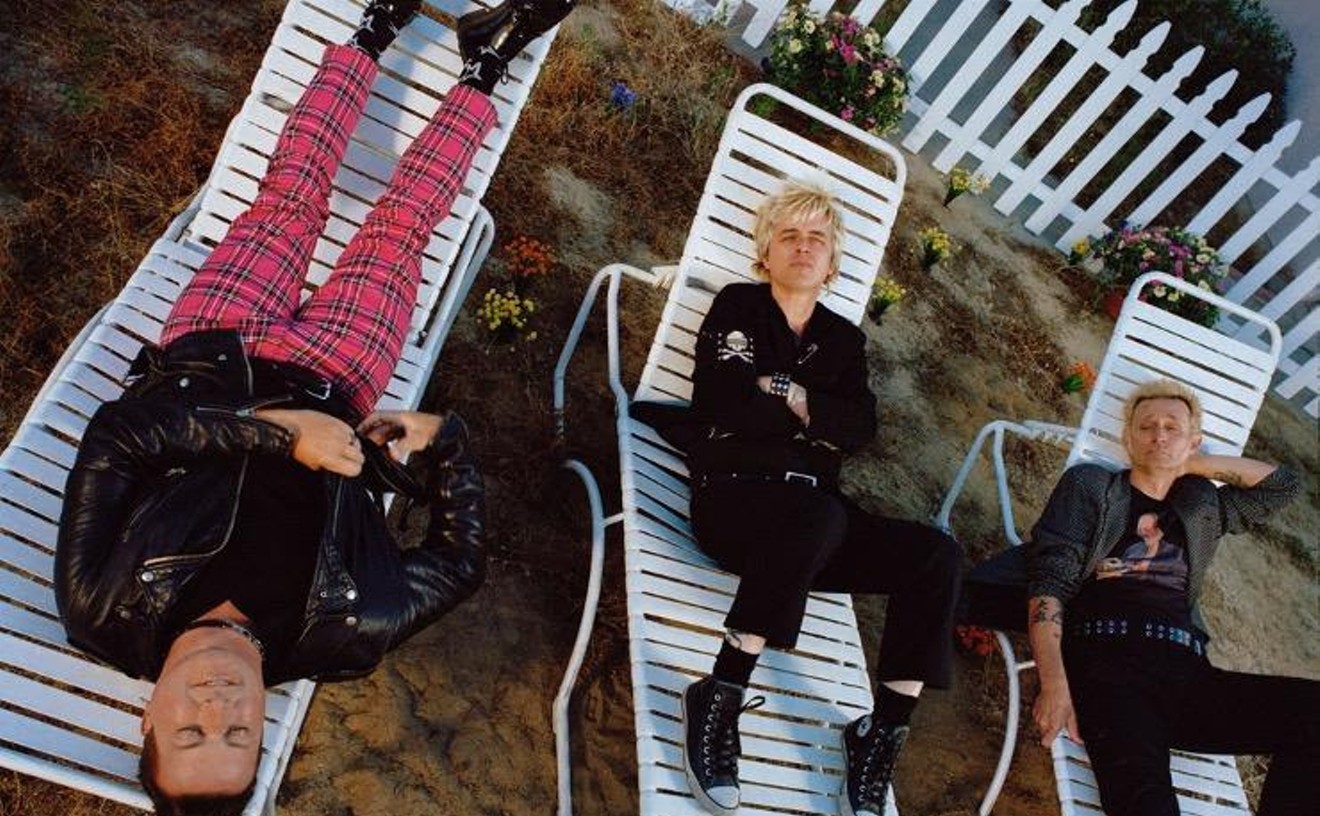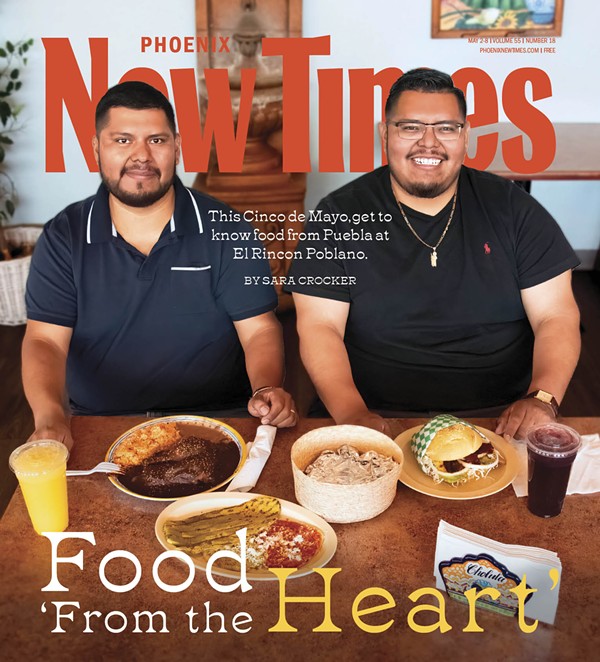"What you hold here are eight songs recorded in 1973 by Queen, one of the great names of postwar international music." Okay. Everybody, back to your seats.
Some might argue that Queen was more a major millstone in the annals of rock, if only for inadvertently influencing some of the worst "postwar international music" imaginable: Styx, Angel, Boston, Kansas, Foreigner, Meat Loaf and Jim Steinman. And as for the release of Queen at the BBC being an "event," this collection of 22-year-old BBC performances has been readily available as a British import since 1989. Unlike the recent Beatles Live at the Beeb, which captured the embryonic Fab Four's sound in the raw, very little of Queen's BBC set is revelatory or, indeed, live.
The band's first performance on BBC Radio utilized the identical backing tracks found on Queen's eponymous debut album, albeit with different vocals. And while the four songs Queen performed on its second broadcast were recorded specifically for BBC transmission, they were "sweetened" with a cavalcade of vocal overdubs. That's cheating! (This musical sleight of hand would continue later on in the quartet's career whenever it performed "Bohemian Rhapsody" live. The boys would dart offstage midway through the number, leaving fans to grumble in a darkened sports arena while a ballroom light spun around and a tape screamed, "Galileo! Galileo!")
Queen's singular greatest achievement wasn't its live shows. Nor was it Freddie Mercury's uncanny Zsa Zsa Gabor impersonation; extravagances in the recording studio are what made the group the stuff of legend. One thing is certain: Queen never made a truly boring album because it exhibited more sins of excess than Sodom and Gomorrah combined. Among the band's stock-in-trade specialties: kitchen-sink overproduction, hammy operatic shenanigans, pinch-nosed vaudeville crooning, bad recital piano playing and, of course, Brian May's homemade guitar, which sounded like the horn on a Model T Ford half the time. All this served to make Queen the feyest heavy-metal group that ever pranced across the Earth.
Sure, the Sweet wore more eye makeup, Bowie was more androgynous and Ray Davies had the limpest wrist in all of rock. But only Freddie Mercury and company had the balls to graft the daintiness of Gilbert and Sullivan's "They Call Me Buttercup" onto recycled Hendrix and Zeppelin riffs.
Queen at the BBC offers the earliest proof that the buck-toothed Mr. Mercury was off his fruity rocker in the grandiose "My Fairy King." It starts off harmlessly enough, with backward-swirling guitars and drummer Roger Taylor's high-pitched, eerie squeals. But once Mercury begins spinning his tale of "horses born with eagle wings" and "rivers made of wine so clear," you feel as if you're listening to that "I am the good Prince Lancelot, I like to sing and dance a lot" operetta from I Love Lucy. Only there's no croaking Fred Mertz to puncture the pomposity of Mercury's admission, "Someone has drained the color from my wings/Broken my fairy suckled wings." Queen had balls, all right. More balls than a Christmas tree.
Queen actually considered calling its second album Over the Top before settling on Queen II, which is unfortunate since it had more in common with the ridiculous Sylvester Stallone film of the same name than the Roman numeral two. The Zeppelin and Hendrix riff-offs subsided somewhat, but those regal and operatic overtones continued to rage on like an undetected cancer. A concept album of sorts, Queen II neatly divided into a "Side White" and "Side Black," odd, as the album was pressed on black vinyl. "Side White" concentrated on Brian May's kinder and gentler compositions, while "Side Black" was the longest uninterrupted stretch of Freddie Mercury poisoning in the band's catalogue.
But far from being Queen's foray into R&B (there'd be plenty of time for such embarrassments as "Soul Brother" later on in its career), "Side Black" was awash with gongs, glockenspiels, harpsichords, triangles, castanets and the most gobbledygook, Lewis Carroll-inspired lyrics since "I Am the Walrus."
At least John Lennon had enough of a track record to make you believe "yellow matter custard dripping from a dead dog's eye" actually meant something. The songs on Queen II didn't even add up to a decent chess match, since its White Queen and Black Queen never meet, stuck on their respective sides of music as they were. Amazingly, what took Queen an entire album to convey, Yes' 1970 hit "Your Move" covered in just two and a half minutes. This marks the only time in its overblown career that Yes actually beat out another group in the brevity sweepstakes.
If there's one Queen album everyone remembers fondly, especially the faction of fans enamored of the group's heavier side, it's Sheer Heart Attack. Besides giving Queen its first U.S. hit with "Killer Queen," the album contained "Now I'm Here," "Brighton Rock" and "Stone Cold Crazy," bone-crunching crowd-pleasers that remained in the band's live act until Queen ceased performing in 1986. Fans of May's "Brighton Rock" guitar solo can hear an early working version of it on the BBC album, as part of an extended version of "Sons and Daughters," a sort of Glen or Glenda? blues number.
Queen became the world's only novelty heavy-metal band with A Night at the Opera. If anything, it was an even more confusing listening experience than Queen II, prompting Creem magazine to write how listening to Opera was like "watching color TV before it was invented." The hard rock that dominates Queen at the BBC was now sidelined in favor of "Fairy King" material like "Bohemian Rhapsody," which featured an incredible 180 vocal overdubs. In the book Wacky Top 40, zany Brian May proudly recalls that "we ran the tape through so many times, it kept wearing out. Once we held the tape to the light and could see straight through it." Most people saw right through A Day at the Races, Opera's shameful look-alike/sound-alike sequel; it sold in the expected droves, anyway. Besides appropriating another Marx Brothers movie title, Races contained yet another mushy Mercury ballad, a "Bohemian" rewrite called "The Millionaire Waltz" (complete with a Strauss swipe and Freddie sending up Julie Andrews and Marlene Dietrich) and a single which went against current fashion and still wound up being a hit. What "Bohemian Rhapsody" did for opera, "Somebody to Love" did for gospel--it made it sound sillier than shit.
Despite its predilection for opulence and ostentatiousness, Queen was instrumental in expediting the punk movement in Britain. When the regal lads canceled a scheduled TV appearance on Bill Grundy's Today program at the last minute, EMI sent Queen's labelmates the Sex Pistols to rattle the host instead. The resulting broadcast touched off a national furor. British dailies had a field day with the punk group's foul language, Grundy lost his job and EMI dropped the Pistols. Under this heady influence of punk, Queen dropped its pearls for swine and began recording its next album.
News of the World was completed in 16 days, a far cry from past lush productions. Though punks continued to slag off Queen as old farts, the veteran poofs proved they could give the Damned and the Buzzcocks a run for their money with speed-punk like Taylor's "Sheer Heart Attack."
Coincidentally, while Queen was finishing up the album, the Sex Pistols were recording "God Save the Queen" in the adjacent studio. Now here's a real EVENT in the annals of rock; when Sid Vicious met Mercury, he graciously congratulated Queen's lead singer for bringing ballet to the masses. Mercury endearingly referred to Sid as "Mr. Ferocious!"
By now Queen's fans had come to expect the unexpected, so it came as no surprise that its seventh album, Jazz, had nothing even remotely resembling jazz on it. Its leadoff track, "Mustapha," was a Middle Eastern muddle that sounded like Freddie had too much baklava caught between his teeth. Having long ago exhausted his desire to write hard rockers, Mercury was churning fluff like "Don't Stop Me Now," which owed more to the Laverne and Shirley theme than Led Zeppelin.
Like News of the World, Jazz also contained a double-sided hit. While the former's "We Are the Champions" and "We Will Rock You" shared a similar "fight, team, fight" theme, there was nothing to link Mercury's infantile "Bicycle Race" with May's offensive "Fat Bottomed Girls" except sheer lunacy.
In 1980, Queen achieved its first two stateside No. 1s with "Crazy Little Thing Called Love" and "Another One Bites the Dust." The latter funk tune, written by bassist John Deacon, drew criticism for being nothing more than a rip-off of Chic's "Good Times." It's a credit to Chic that no lawsuit was ever filed. Queen was far less understanding when Vanilla Ice sampled the band's 1981 collaboration with David Bowie "Under Pressure" for his "Ice Ice Baby." After putting pressure on Ice, subsequent pressings of "Ice Ice Baby" carried a Queen/Bowie co-writing credit.
Up until The Game, there were enough head-bangers per LP for people who liked Aerosmith and Zeppelin to still have a soft spot for Queen. But clouds were growing on the pink horizon; the band's success in the field of dance music spelled trouble for the group and its closet homophobic following. Old fans began dropping Queen so rapidly with its next album, it probably should've been named Hot Potato instead of Hot Space. Sure, in the past, Mercury wore nail polish, Cleopatra eye makeup, Zandra Rhodes designer outfits and entertained live audiences with a bump 'n' grind version of "Hey Big Spender." At least the band still rocked! Now Freddie was singing to disco synths and dressing up like one of the Village People.
American fans are funny that way. They abandoned Billy Squier simply for dancing like a flaming tart on his "Rock Me Tonight" video. Who could forget how Elton John's massive popularity in the States shriveled once he admitted to Rolling Stone that he was bisexual? It took a short-lived marriage, two hair transplants and a string of bad records before Yanks would take him back. Mercury remained ambiguous about his sexuality 'til the very end, but few gave him the benefit of the doubt after seeing the 1984 video for "I Want to Break Free." The sight of all four Queen members cross-dressing was too much for weak American hearts to bear.
Mercury's drag antics even alienated South American fans at the Rock in Rio festival. When he performed "I Want to Break Free" in garters, a wig, black panties and strap-on boobs, they pelted him mercilessly with debris. Was Mercury that out of touch with his fans that he didn't know these people had adopted his song as an anthem against military dictatorship? Queen went on to show equal disregard for its devotees throughout the world when it violated the UN ban on performing in South Africa. After the excursion, May was busy backpedaling ("We're totally against apartheid, but I feel we did a lot of bridge building") and Mercury was busy inserting his ballet slipper into his mouth ("But there's so much money to be made, dahling!"). Queen was hardly the champions of the world to the United Nations, which placed the group on its list of unfavored performers.
Meanwhile, back in the States, it mattered little that Queen stopped performing after 1986. The band hadn't set foot on American soil since the "Hot Space" tour in '82. Although the group remained immensely popular throughout the rest of the world, its last three albums charted embarrassingly low here.
Unfortunately, it took Mercury's dying from AIDS in 1991 to remind Americans that Queen was a group it had once taken to heart. Many sought out those later, untried albums like A Kind of Magic, The Miracle and the band's swan song, Innuendo, paying special morbid attention to Mercury's signing-off anthems like "Was It All Worth It," "Love Kills," "Who Wants to Live Forever" and "The Show Must Go On." The excess that ran through Queen's long body of work was no longer a laughing matter when it spilled into Mercury's personal life.
Which brings us up to the present day in back-to-front style. Though Queen at the BBC is certainly no "event," it is an interesting listen, as it bears little resemblance to the overblown act the band would become. There're snippets of decadence, snatches of arrogance, but it's like looking at Caligula's baby pictures. You read too much into a mischievous gleam in the eye. Although it goes against the grain of Queen at the BBC's ridiculously highbrow liner notes, Freddie Mercury didn't set out to change the world with songs like "Keep Yourself Alive," "Great King Rat" or, for that matter, "Bohemian Rhapsody" and "Bicycle Race."
"I write songs for fun, for modern consumption," he once remarked. "People can discard them like a used tissue afterwards. You listen to it, like it, discard it, then on to the next. Disposable pop, yes."
Queen is dead. Long live product.









